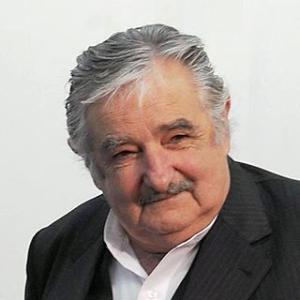Adding to the chorus calling for the Obama administration to "do the right thing" and let Colorado and Washington proceed with legalizing and regulating marijuana, Law Enforcement Against Prohibition delivered a letter to Attorney General Eric Holder on Tuesday.
Colorado's congressional delegation is demonstrating that it heard the voice of the voters loudly and clearly on the topic of marijuana legalization. Letters are going out, bills are being filed.
We are approaching a new year, in a new time, with critical opportunities and critical work needed to be done. A tax-deductible donation as year's end approaches will make sure the word gets out in 2013 -- a non-deductible donation will help us advocate legislatively too.
Now that Colorado and Washington have blown open the door, legislators in New England are rushing to be the next to legalize marijuana.
Marijuana legalization continues to hover on the cusp of majority support nationwide, according to two new national polls.
It's been fairly quiet on the dispensary front, but action is beginning to heat up at state houses in preparation for the 2013 legislative season.
The International Narcotics Control Board predictably has "grave concerns" about the marijuana legalization victories in the US and urges the US government to ensure that it stays in compliance with international anti-drug treaties.
Uruguayan President Jose Mujica's bill to start state-operated or -regulated marijuana cultivation and distribution was presented to Congress Wednesday, and it includes home grow and "smoking club" cultivation provisions.
Singapore has taken a first baby step in moving away from resorting to the death penalty for drug offenses.
A Mexican lawmaker has just introduced a marijuana legalization bill. It's unlikely to pass, but will provide an opportunity for debate on drug policy and is yet another response to last week's legalization victories here in the US.
We log three more drug war deaths, from Arizona, Georgia, and New Mexico.
We have a trio of corrupt cops this week, including a former sheriff and a former police chief.
Tuesday morning, former Baltimore narcotics officer Neill Franklin delivered a letter signed by 73 current and former police officers, judges, prosecutors, and federal agents to Attorney General Eric Holder at the Justice Department in downtown Washington , DC, urging him not to ignore the wishes of voters in Colorado and Washington state who voted to legalize, tax, and regulate marijuana.

LEAP leader Neill Franklin delivers letters to the Justice Department. (leap.cc)
Franklin is the executive director of
Law Enforcement Against Prohibition (LEAP), which supported Amendment 64 in Colorado and Initiative 502 in Washington. Both measures won with 55% of the vote in this month's elections.
"As fellow law enforcement and criminal justice professionals we respectfully call upon you to respect and abide by the democratically enacted laws to regulate marijuana in Colorado and Washington," the letter said. "This is not a challenge to you, but an invitation -- an invitation to help return our profession to the principles that made us enter law enforcement in the first place."
The Obama administration's response to the legalization votes could help define its place in the history books, LEAP warned.
"One day the decision you are about to make about whether or not to respect the people's will may well come to be the one for which you are known. The war on marijuana has contributed to tens of thousands of deaths both here and south of the border, it has empowered and expanded criminal networks and it has destroyed the mutual feeling of respect once enjoyed between citizens and police. It has not, however, reduced the supply or the demand of the drug and has only served to further alienate -- through arrest and imprisonment -- those who consume it," the letter said.
"At every crucial moment in history, there comes a time when those who derive their power from the public trust forge a new path by disavowing their expected function in the name of the greater good. This is your moment. As fellow officers who have seen the destruction the war on marijuana has wrought on our communities, on our police forces, on our lives, we hope that you will join us in seeking a better world," the letter concluded.
The LEAP letter is only the latest manifestation of efforts by legalization supporters to persuade the federal government to stand back and not interfere with state-level attempts to craft schemes to tax and regulate marijuana commerce. Members of the Colorado congressional delegation have introduced legislation that would give the states freedom to act, while other members of Congress, notably Reps. Barney Frank (D-MA) and Ron Paul (R-TX), have called on the Obama administration to "respect the wishes of voters in Colorado and Washington." Frank and Paul are cosponsors of a pending federal legalization bill.
"We have sponsored legislation at the federal level to remove criminal penalties for the use of marijuana because of our belief in individual freedom," Frank and Paul wrote in a
letter to President Obama last week. "We recognize that this has not yet become national policy, but we believe there are many strong reasons for your administration to allow the states of Colorado and Washington to set the policies they believe appropriate in this regard, without the federal government overriding the choices made by the voters of these states."
"We seem to be at a turning point in how our society deals with marijuana," said Franklin Tuesday. "The war on marijuana has funded the expansion of drug cartels, it has destroyed community-police relations and it has fostered teenage use by creating an unregulated market where anyone has easy access. Prohibition has failed. Pretty much everyone knows it, especially those of us who dedicated our lives to enforcing it. The election results show that the people are ready to try something different. The opportunity clearly exists for President Obama and Attorney General Holder to do the right thing and respect the will of the voters."
"During his first term, President Obama really disappointed those of us who hoped he might follow through on his campaign pledges to respect state medical marijuana laws," continued Franklin. "Still, I'm hopeful that in his second term he'll realize the political opportunity that exists to do the right thing. Polls show 80% support for medical marijuana, and in Colorado marijuana legalization got more votes than the president did in this most recent election."
"From a public safety perspective, it's crucial that the Obama administration let Colorado and Washington fully implement the marijuana regulation laws that voters approved on Election Day," added LEAP member Tony Ryan, a retired 36-year Denver Police veteran. "There's nothing the federal government can do to force these states to arrest people for marijuana possession, but if it tries and succeeds in stopping the states from regulating and taxing marijuana sales, cartels and gangs will continue to make money selling marijuana to people on the illegal market. Plus, the states won't be able to take in any new tax revenue to fund schools."
At a Tuesday noon press conference, Franklin and other LEAP members hammered home the point.
"LEAP members have spent the majority of their careers on the front line of the war on drugs and have seen the failure of prohibition," he said. "We call now to end prohibition and embrace a new drug policy based on science, facts, and the medical field."
Former Seattle police chief Norm Stamper told the press conference the war on marijuana was essentially a war on youth, especially minority youth, that sours police-community relations.
"I have come to believe that the war on marijuana has made enemies of many law-abiding Americans, especially many young, black, Latino, and poor Americans," Stamper said. "The law and the mass incarceration behind it have set up a real barrier between police and the community, particularly ethnic communities."
Legalization and regulation will help change that negative dynamic, Stamper said.
"This frees up police to concentrate on violent, predatory crimes, those crimes that really scare people, drive property values down, and diminish the quality of our lives," he said. "We're convinced that by working with the community, including those victimized by these laws, we can build an authentic partnership between police and the community and create true community policing, which demands respect for local law enforcement. By legalizing we have a chance to significantly reduce race and class discrimination. Watch what we do, we will use these states as a laboratory, and the sky will not fall."
"I joined this movement when I was made aware the war on drugs was a war on our community," said Alice Huffman, president of the California NAACP. "Instead of being protected, we were being targeted. We don't feel like the police are protecting us; instead, they have declared war on our young men and women. The amount of resources being used in this war to divide the community is why we have so many incidents between law enforcement and our community. We know that come Friday and Saturday night there will be a ring of law enforcement personnel ringing our community looking to make those low-level drug arrests."
"I believe the regulation and legalization of marijuana is not only long overdue, but will make our communities safer," Huffman continued. "I am very hopeful that our president, who has some experience of his own with marijuana use, which didn't prevent him from becoming a strong leader, will see the light and get rid of these approaches that do nothing but condemn our people to a life of crime because they have felonies and are no longer employable. Instead of treating them like criminals, maybe we can treat them like people with health problems."
The Obama administration has yet to respond substantively to this month's victories for marijuana legalization. Nothing it says or does will stop marijuana from becoming legal to possess (and to grow in Colorado) by next month in Washington and by early January at the latest in Colorado, but it could attempt to block state-level attempts to tax and regulate commercial cultivation and distribution, and it has some months to decide whether to do so. Tuesday's letter and press conference were part of the ongoing effort to influence the administration to, as Franklin put it, "do the right thing."
back to top
In the wake of this month's vote in Colorado to legalize marijuana, which won with 55% of the vote, a bipartisan group from the state's congressional delegation is stepping up in support of the voters' choice. Last Thursday, three Colorado members of the House (as well as 15 other representatives) sent a letter to Attorney General Eric Holder asking him to respect the state's new marijuana law. The following day, one of the same members of the Colorado delegation filed a bill that would ensure that the federal government does not override the vote in Colorado and in Washington, where a similar measure also passed.
The Obama administration should "take no action against anyone who acts in compliance with the laws of Colorado, Washington and any other states that choose to regulate access to marijuana," the letter penned by Rep. Jared
Polis (D-CO) said. "The voters of these states chose, by a substantial margin, to forge a new and effective policy with respect to marijuana. The tide of public opinion is changing, both at the ballot box and in state legislatures across the country. We believe that the collective judgment of voters and state lawmakers must be respected."
Urging the administration to have a light touch is one thing; legislation requiring it to do so is another, and that's what Rep. Diana
DeGette (D-CO) has introduced. Her bill, the
Respect States' and Citizens' Rights Act, filed with bipartisan support, would exempt states that have passed marijuana legalization from the marijuana provisions of the federal Controlled Substances Act.
"Today I am proud to join with colleagues from both sides of the aisle on the 'Respect States' and Citizens' Rights Act' to protect states' rights and immediately resolve any conflict with the federal government. In Colorado we've witnessed the aggressive policies of the federal government in their treatment of legal medicinal marijuana providers. My constituents have spoken, and I don't want the federal government denying money to Colorado or taking other punitive steps that would undermine the will of our citizens,"
DeGette, of Denver, said in a
statement.
"I strongly oppose the legalization of marijuana, but I also have an obligation to respect the will of the voters given the passage of this initiative, and so I feel obligated to support this legislation," said Rep. Mike
Coffman (R-CO).
The bill has support from outside of Colorado and Washington, too.
"Residents of Colorado and Washington have made it clear that the public is ahead of the federal government in terms of marijuana legalization," said Rep. Earl
Blumenauer (D-OR). "It’s time for Congress to pass legislation -- such as the 'Respect States' and Citizens' Rights Act' -- that allows states to implement their own laws in this area without fear of federal interference."
"All across the country, states are choosing to reform their marijuana laws. As Justice Brandeis observed, states are the 'laboratories of democracy' and they should be given the opportunity to go forward with this social experiment," said Rep. Steve Cohen (D-TN). "I'm proud to cosponsor this important bill, which will ensure that the federal government respects the people's judgment."
back to top
Dear StoptheDrugWar.org supporter:
| |  |
| |
We are approaching a new year in a new time. Things are moving our way -- in a big way. But there are critical next steps to take; there is critical work to be done. As we approach December 31st, would you consider a generous tax-deductible donation to support our educational work in 2013? Or if you're not using tax-deductions this year, non-deductible donation to support our lobbying work?
As our thanks to supporting members, we are offering a range of books, videos, and our other gift items, new ones and older (discounted) ones still in stock. Some of our items are available with gifts as low as $15 -- the full list can be viewed in the drop-down menu on our donation page. (Important if you're considering a tax-deductible donation: Any gifts you select reduce the portion of your donation that's deductible, by the items' retail value.)
With marijuana legalization passing in two states, with growing international support for a real debate about prohibition, people are talking about drug policy like never before. And so two of our newest offers for donating members come from the academic world rather than activist reformer circles: Marijuana Legalization: What Everyone Needs to Know and Drugs, Insecurity and Failed States: The Problems of Prohibition.
This is also a time of continuing outrages in the government's drug war, including the federal campaign against medical marijuana. And so our third new offer is the DVD Lynching Charlie Lynch, telling the story of one of California's most respected and responsible medical marijuana providers, now facing time in federal prison. (Follow the three links above for Drug War Chronicle reviews of each of these works.)
| |  |
| |
Donate $35 or more to StoptheDrugWar.org, and you will be eligible for a complimentary copy of any one of these items. Donate $65 or more and you'll be eligible for any two. Donate $95 or more and you can receive all three. (As I mentioned, each of these items, and each combination along with other available items, can be found in the "membership premiums" section of our online donation form, under the indicated minimum total, as well as our older items.)
At a time like this -- when people are talking about drug policy like never before -- the movement's internet strategy is also more important than ever before. So please support our work with a generous donation by credit card or PayPal today. You can also donate by mail -- info below.
Lastly, please note that even with a nonprofit, bulk discount, we spend a significant amount to purchase these items and send them to you -- if you can afford to donate more than the minimum, or to supplement your donation with a continuing monthly contribution, I hope you'll consider doing so. If gift items are not important to you, I hope you'll consider sending a donation that's entirely for our work.
| |  |
| |
Donations to our organization can be made online at http://stopthedrugwar.org/donate, or they can be mailed to: DRCNet Foundation (tax-deductible), P.O. Box 18402, Washington, DC 20036; or Drug Reform Coordination Network (non-deductible for lobbying), same address. Contact us for information if you wish to make a donation of stock. (Note that selecting gift items will reduce the amount of your donation that is tax-deductible, by the item's retail value.)
Thank you for standing with us to stop the drug war's cruelties and meet the opportunity this time offers to make a brighter future. As events now show: time, and the truth, are on our side!
Sincerely,

David Borden, Executive Director
StoptheDrugWar.org
Washington, DC
http://stopthedrugwar.org
back to top
In the wake of this month's marijuana legalization victories in Colorado and Washington, legislators in New England are ramping up efforts to be the next state to legalize. Solons in Massachusetts, Maine, Rhode Island, and Vermont have all signaled they will be filing legalization bills next year.
''Last week, Washington and Colorado replaced their states' prohibitions on marijuana with a system of regulation and taxation,'' said Robert
Capecchi, a legislative analyst with the
Marijuana Policy Project, which organized a press conference with legislators last week.
''Both measures passed with roughly 55% voting in favor,''
Capecchi noted. ''Gallup found 50% support for making marijuana legal last year, and that support has risen over the years. We are passing the tipping point when it comes to this issue. Unfortunately, lawmakers have traditionally been behind public opinion when it comes to marijuana policy reform. With these thoughtful legislators in at least four states planning on introducing sensible proposals to remove criminal penalties and regulate marijuana in their states, it's clear that ending marijuana prohibition is gaining momentum.''
At the press conference, Rhode Island state Rep. Edith
Ajello (D-Providence), who introduced legalization bills in 2010 and 2011, said she would do so again. ''Our prohibition has failed,'' she said. "I think legalizing and taxing it, just as we did to alcohol, is the way to do it."
Maine state Rep. Diane Russell (D-Portland) said she, too, will reintroduce a marijuana legalization bill,
LD 1453, in her state. "The people are far ahead of the politicians on this," Russell said. "Just in the past few weeks we've seen the culture shift dramatically."
Legislators in Vermont and Massachusetts have also signaled they will be filing marijuana legalization bills next year. The legislative process is frustratingly slow, often taking several years to get a measure through, but in the wake of the Colorado and Washington votes, we could see a sudden collapse in support for pot prohibition, even at the state house.
back to top
Two polls released last week show support for marijuana legalization hovering just under the 50% mark, with the American public split almost evenly on the issue. Both polls showed that support for marijuana legalization continues to trend upward.
A
Rasmussen Reports poll released Monday had 45% in support, 45% opposed, and 10% undecided, while a
Washington Post/ABC News poll released Wednesday had 48% in support, 50% opposed, and 2% undecided. The support figure in the latter poll rose one point to 49% when only registered voters were polled.
The polls come a week after two US states passed initiatives legalizing marijuana. Amendment 64 in Colorado and Initiative 502 in Washington both won with 55% of the vote. National polls have consistently show higher support for legalization in the West than in other regions of the country.
The Rasmussen poll showed support for legalization up five points since the firm last asked the question in 2009. It also found that 60% of respondents thought marijuana legalization was best left to the states, with only 27% saying the federal government should decide. And it found that fewer than out of ten (7%) think the US is "winning" the war on drugs, with 83% don't.
Both polls showed plurality support for marijuana legalization among all age groups except seniors. And both polls showed that the gender gap remains intact. Support for legalization was higher among men than women by 12 points in the Rasmussen poll and nine points in the Washington Post/ABC News poll.
The Rasmussen poll surveyed 1,000 adults nationwide on November 9 and 10 and has a margin of error of +/-3%. The Washington Post/ABC News poll surveyed 1,023 adults nationwide between November 7 and 11 and has a margin of error of +/-3.5%.
back to top
It's been fairly quiet on the dispensary front, but action is beginning to heat up at state houses in preparation for the 2013 legislative season. Let's get to it:
Alabama
Last Wednesday,
a medical marijuana bill got a hearing in the House Health Committee. Again sponsored by Rep. Patricia Todd (D-Birmingham), the bill would allow seriously ill patients to use marijuana with a doctor's recommendation. But after 90 minutes of testimony, the committee chairman and a top legislative leader said it would be a long time before the measure even got a vote. Previous bills have never made it out of the committee, but Todd will keep trying. "This is the beginning of the conversation," she said.
California
Last Tuesday,
the Berkeley city council agreed that a local dispensary was operating illegally and should be shut down. The Perfect Plant Patients Group (
3PG) is in violation of numerous zoning and permitting regulations, the council found. While the council voted unanimously to shut down
3PG, at least one member, Councilman
Kriss Worthington, challenged the city's law limiting the number of dispensaries to four. "We have to expand the number of dispensaries that are legal beyond four," he said, arguing there are hundreds of places in Berkeley where people can get medical cannabis. "We're closing our eyes, pretending it doesn't exist."
Colorado
Last Thursday,
the state Court of Appeals ordered Colorado Springs police to return 60 pounds of medical marijuana they seized from a cancer patient who was later acquitted of drug charges. Police had seized the marijuana in May 2011, and a district court judge earlier this month ordered that it must be returned after Bob
Crouse, 64, was acquitted. El Paso County prosecutors had won a stay after arguing that police could be at risk of violating federal law if they returned the marijuana, and the appeals court agreed to hear that appeal, but ordered that the marijuana must be returned to
Crouse. The returned marijuana is most likely now unusable.
Connecticut
On Tuesday,
medical marijuana advocates met in Hartford to discuss creating a business alliance for entrepreneurs and others interested in the subject. The proposed Connecticut Medical Cannabis Business Alliance would be modeled on similar groups in Colorado. The state's medical marijuana program is expected to be up and running by late next year, with the Department of Consumer Protection having until July 1 to submit proposed regulations to the General Assembly.
Iowa
On Monday,
state Rep. Bruce Hunter said he would reintroduce a medical marijuana bill. The Des Moines Democrat said he will also introduce a decriminalization bill. State Sen. Joe
Bolckom (D-Iowa City) said that he, too, was reintroducing a medical marijuana bill and looking for cosponsors. But it's an uphill road:
Gov. Terry
Branstad (R) has said he will veto any such bill, and a spokesman for House Speaker
Kraig Paulsen said that "as with past efforts to legalize marijuana, House Republicans are unlikely to support the measure and do not believe it is a priority."
back to top
The president of the International Narcotics Control Board (INCB) last Thursday voiced "grave concern" about the votes legalizing marijuana in the US states of Colorado and Washington, as well as in the Michigan cities of Detroit and Flint. INCB head Raymond Yans also warned that allowing for the legal, non-medical sale of marijuana would violate the 1961 UN Single Convention on Narcotic Drugs.

INCB President Raymond Yans (incb.org)
The
INCB is a quasi-judicial body charged with monitoring compliance with the Single Convention and associated treaties. It hectors governments that step outside its interpretation of what the treaties allow, although in practical terms, its ability to enforce its will is mainly rhetorical.
INCB criticism of Australia and Canada over the establishment of safe injection sites, for example, has not moved those governments to end the practice, nor has its criticism of Bolivia over allowing coca cultivation resulted in a shift of policy in Bolivia.
Yans was inspired to speak out by the victories of Amendment 64 in Colorado and Initiative 502 in Washington state, both of which envisage legal, state-regulated commercial marijuana cultivation and distribution regimes and both of which will result in the possession of small amounts by adults being legal by early next year. The
INCB also alluded to the votes in the Michigan cities of Detroit and Flint to legalize the possession of up to an ounce by adults on private property.
"These developments are in violation of the international drug control treaties, and pose a great threat to public health and the well-being of society far beyond those states,"
Yans said in a
statement. "Legalization of cannabis within these states would send wrong and confusing signals to youth and society in general, giving the false impression that drug abuse might be considered normal and even, most disturbingly, safe. Such a development could result in the expansion of drug abuse, especially among young people, and we must remember that all young people have a right to be protected from drug abuse and drug dependency."
This isn't your father's marijuana,
Yans warned.
"Since the adoption of this Convention, very potent new forms of cannabis have appeared on the illicit market, and technological advances have been used to increase the content of the most 'active ingredient,' so to speak, in cannabis,
tetrahydrocannabinol (THC). The cannabis on the illicit market today is much more dangerous than that seen in the
60s and
70s,"
Yans said.
Yans also noted that "for the international drug control system to function effectively, to achieve its aim of ensuring availability of drugs for medical purposes while preventing their abuse, the conventions must be universally adhered to and implemented by all states." He called on the US government "to take the necessary measures to ensure full compliance with the international drug control treaties within the entire territory of the United States, in order to protect the health and well-being of its citizens."
back to top
A Uruguayan bill that would create a system of state-licensed marijuana sales and commercial cultivation was presented to Congress last Wednesday, and, according to Reuters, includes a provision that will allow Uruguayans to grow their own at home or in clubs.

Uruguayan President Jose "Pepe" Mujica (wikipedia.org)
The use and possession of small amounts of marijuana is already legal in Uruguay, but President Jose
Mujica, a former leftist guerrilla leader, has said he wants to see the measure passed in a bid to undermine drug-smuggling gangs and other criminality in a region buffeted by prohibition-related violence.
Unlike earlier news reports, which spoke of a state monopoly on marijuana cultivation and sales, the bill introduced Wednesday says only that the government will manage and regulate commercial cultivation and sales. Whether it will actually open state-run pot farms or marijuana retail outlets is yet to be decided, but in either case, a National Cannabis Institute will be in charge.
"The idea is to grant licenses for production, distribution, storage and for retail. We haven't said whether that will be done by the private or public sector, the government will decide that," Sebastian
Sabini, a ruling party lawmaker who heads a congressional committee on drugs and addiction, told
Reuters.
Under the pending legislation, each household could grow up to six plants or possess up to 480 grams, or slightly more than a pound. People could also join "smoking clubs" with up to 15 members and grow six plants per member, up to an annual production of 15.8 pounds. Marijuana users who wanted to buy through state-operated or -- regulated facilities would be limited to purchasing 40 grams (just under 1 ½ ounces) per month.
Because Uruguay is a parliamentary democracy and because
Mujica and his political allies control both houses of Congress, the bill is expected to be approved sometime next year.
back to top
The parliament of Singapore has approved legislation abolishing mandatory death sentences in some drug trafficking cases. The action came last Wednesday, according to a press release from the Singapore Attorney-General's Chambers.

Singapore skyline (wikitravel.org)
Under the reform, judges will be able to commute some death sentences to sentences of life in prison. Before, judges were forced to impose the death penalty on persons trafficking drugs above certain specified quantities.
The reform will allow judges to avoid imposing the death penalty only if specified conditions are met. Those conditions are if the defendant was no more than a drug courier
and prosecutors certify that he "has substantively assisted the Central Narcotics Bureau to disrupt drug trafficking activities within or outside Singapore,
or the accused proves that he was suffering from such abnormality of mind that it substantially impaired his mental responsibility for committing the offense."
While human rights groups have called for the abolition of the death penalty in Singapore, the government there has called it a deterrent to serious crime. According to
Harm Reduction International's 2010 report,
The Death Penalty for Drug Offenses, Singapore is one of the states with a "high commitment" to the death penalty for drug offenses, meaning not only does it have the death penalty on the books, but it uses it. Other countries with a "high commitment" to the death penalty for drug offenses are China, Iran, Saudi Arabia, Malaysia and Vietnam.
The Attorney-General's Chamber, which oversees all criminal prosecutions in the East Asian city-state, said that 34 people are currently on death row for either murder or drug offenses, although it didn't specify how many were from which category. All of those on death row can now appeal their sentences, the prosecutor's office said.
back to top
A deputy from Mexico's left-leaning Democratic Revolutionary Party (PRD) last Thursday introduced a bill (not yet posted) to legalize the use, cultivation, and sale of marijuana. The bill's chances of passage are slim, but in the wake of the successful marijuana legalization votes in Colorado and Washington, it will likely become a venue for further criticism of drug prohibition policies on both sides of the border.

Is there a better way to deal with Mexican marijuana? (sedena.gob.mx)
"The prohibitionist paradigm is a complete failure," said Fernando
Belaunzaran, who represents a Mexico City district for the
PRD. "All this has done is spur more violence, the business continues. The country that has paid the highest cost is Mexico," he told
Reuters last Thursday.
Mexico decriminalized the possession of small amounts of drugs, including marijuana, in 2009. But while that move arguably improved the situation of drug users there, it has done nothing to reduce the prohibition-related violence that has cost the country at least 60,000 lives since President Felipe Calderon took office in December 2006.
Mexico has repeatedly demanded that the US do more to curb drug consumption at home, which it charges is driving the drug trade there. The frustration with US policy has only increased since last week's victories for Amendment 64 in Colorado and Initiative 502 in Washington.
Earlier last week, President Calderon joined with Central American heads of state to issue a declaration calling for a review of international drug policies, while a week earlier, a chief advisor to incoming President Enrique Pena
Nieto, Luis
Videgaray, said the legalization votes meant Mexico must reconsider its approach to the drug trade. Also last week, the governor of Chihuahua, Cesar Duarte, suggested that Mexico should legalize marijuana exports to the US.
While discontent with US drug policies is growing in Mexico, support for marijuana legalization remains weak. The bill's fate is also dim because the
PRD and associated leftist parties constitute only the second largest bloc in the Congress, behind Pena
Nieto's Institutional Revolutionary Party (PRI). Still, marijuana legalization will be on the congressional agenda in Mexico next year.
back to top
Colorado and Washington may have legalized marijuana, but the drug war continues apace. We here record two more deaths in the name of drug prohibition. The two who died in separate incidents become the 57th and 58th persons to die in US domestic drug law enforcement operations so far this year.
In
Cartersville, Georgia, an as yet unidentified 66-year-old woman was shot and killed in her home by drug task force members executing a search warrant there,
according to local press reports. Police said members of the
Bartow-Cartersville Drug Task Force were executing the search warrant after dusk last Thursday evening when they encountered an "armed assailant" and opened fire.
A member of the woman's family said police entered with a "no-knock" warrant, meaning they were allowed to legally burst into the home without notifying the residents beforehand.
Police said the two shooters have been placed on administrative leave pending an inquiry by the Georgia Bureau of Investigation.
"That was my aunt and she has never ever hurt anyone," wrote someone identifying herself as Tina
Bunn in the comments section of the article linked to above. "She had a heart like no one I ever seen, but her being shot by cops, I don't even know what to say, but what is our world coming to today? You will be so missed and we will think about you every day. I hope your afterlife is what you thought it would be, and say hi to all our family that left before you, and one day we will all be back together. RIP and God be with us to help us with this pain of saying good bye."
"This was a good woman, had a heart of gold that lived alone with her two dogs!" added a
commenter identified only as Brandon. "She didn't deserve to be shot down like that! She had to be scared and couldn't have known what was going on! I hope the police officers that pulled the triggers feel real good and powerful about what they did! We will always love and miss you, Miss Jean! RIP."
In Tucson, Arizona, Vladimir
Cardenas, 23, was shot and killed by a Pima County deputy sheriff during a traffic stop Friday as he traveled with drugs and weapons in his car,
according to a Pima County Sheriff's Department press release. Police said a deputy pulled over
Cardenas' vehicle in north Tucson, and while the two men talked,
Cardenas pointed a gun at the deputy, who then shot him. He died soon after at a local hospital.
The deputy who shot
Cardenas was identified as Nicholas Norris. He has been placed on routine administrative leave while the shooting is probed.
As part of the investigation conducted at the scene Friday night, detectives with the Sheriff's Criminal Investigation Division obtained a search warrant for
Cardenas' vehicle. They found different types of drugs, drug paraphernalia, and a variety of weapons.
Cardenas was also wanted on a misdemeanor warrant from Tucson.
back to top
We have a trio of corrupt cops this week, including a former sheriff and a former police chief. Let's get to it:
In Rockingham, North Carolina, a former Rockingham police chief was indicted last Tuesday on charges he stole thousands of dollars in seized drug money. Robert Vorhees, a 21-year veteran, had resigned in February, citing medical reasons, but city officials said they discovered "significant irregularities" in financial records and a checking account at a local bank where Vorhees apparently deposited money. He has now been indicted on charges he embezzled more than $38,000.
In Mecklenburg, Virginia,
a former Halifax County sheriff was indicted last Tuesday on charges he stole sheriff's office funds, including monies intended for drug interdiction. Former Sheriff Stanley
Noblin faces 21 forgery and embezzlement charges. Search warrants issued in the case indicated that up to $113,180.50 in funds was missing from the sheriff’s office. The allegations against
Noblin were first aired by former Sheriff Jeff Oakes, who lost a bitter 2007 election to him.
In Pine City, Minnesota,
a Pine County sheriff's deputy was arrested last Friday on charges he stole narcotic pain pills on multiple occasions. Deputy Justin Stoddard is accused of taking pain pills from a Pine City home in October when he stopped by to warn residents about narcotics thieves purportedly casing the neighborhood. He is also accused of taking
oxycodone from a residence while investigating a custody dispute a month earlier. He faces seven criminal counts, including theft of a controlled substances and official misconduct.
back to top













